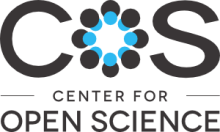Resource information
The author describes a new type of negotiated land reform that relies on voluntary land transfers negotiated between buyers and sellers, with the government's role restricted to establishing the necessary framework for negotiation and making a land purchase grant available to eligible beneficiaries. This approach has emerged-following the end of the Cold War and broad macroeconomic adjustment--as many countries face a second generation of reforms to address deep-rooted structural problems and provide a basis for sustainable economic growth and poverty reduction. The author describes initial experiences in Brazil, Colombia, and South Africa. It is too soon to know whether negotiated land reform can rise to the challenges administrative land reform failed to solve but the data so far suggests that: 1) Negotiated land reform can succeed only if measures are taken to make the market for land sales and rentals more fluid transparent. 2) Productive projects are likely to be the key to market-assisted land reform. The potential for project productivity establishes an upper bound on the price to be paid and a basis for financial intermediaries to evaluate the project. It also requires beneficiaries to familiarize themselves with the realities they're likely to confront as independent farmers and the limits to how much land reform can help them achieve their goals. 3) The only way to effectively coordinate the entities involved in the process is through decentralized, demand-driven implementation. 4) The long-run success of land reform depends on getting the private sector involved and using the land purchase grant to"crowd in"private money. Banks&Banking Reform,Environmental Economics&Policies,Agricultural Knowledge&Information Systems,Municipal Housing and Land,Land Use and Policies,Environmental Economics&Policies,Agricultural Knowledge&Information Systems,Municipal Housing and Land,Rural Land Policies for Poverty Reduction,Banks&Banking Reform


